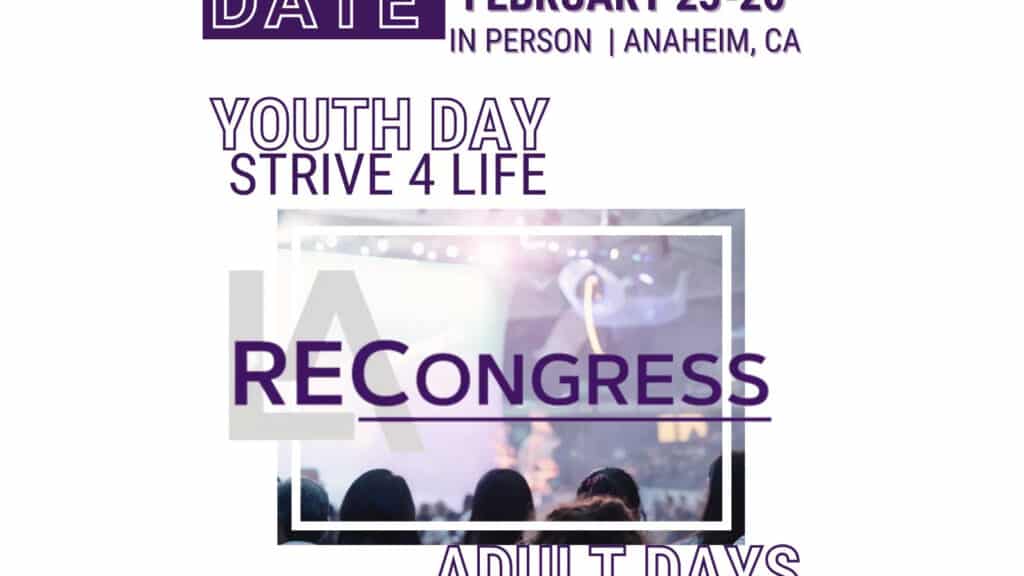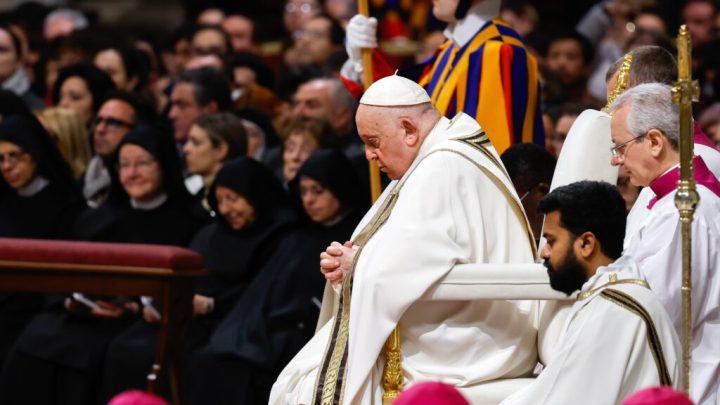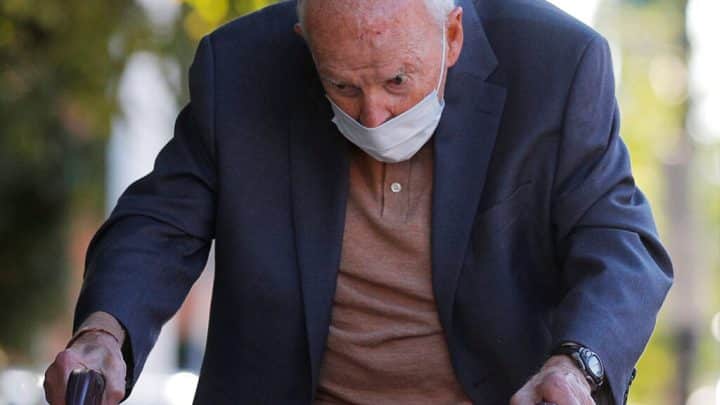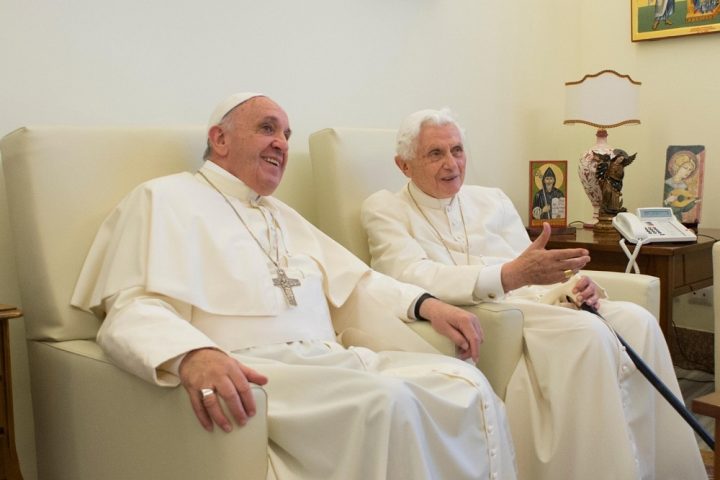
By Tom Hoffarth
LOS ANGELES (OSV News) — Silvia and Guido Figueroa’s plans for their 15th straight Los Angeles Religious Education Congress (REC) begin with a caravan from Sylmar to Anaheim with about 30 parishioners from St. Didacus Catholic Church. From there, they’ll check into the small-scale hotel they found within walking distance of the Anaheim Convention Center.
Mostly, they look forward to reconnecting during the Feb. 23-26 gathering with many of those who they’ve come to know over the years and share their passion as catechists. (Feb. 23 of the congress is Youth Day.)
To help train dozens of parents of elementary-school-age children for the sacrament of first Communion, the couple often juggle their schedules to accommodate all sorts of illness or hardships so families can stay caught up in their program.
The Figueroas know something of their pains.
Silvia’s parents both passed away from COVID-19 in 2020, an agony made worse when she was unable to travel back to her native Guatemala to see them. Her oldest sister and youngest brother were also critically ill with the virus but survived.
“My faith life is strong,” Silvia said through a translator during a recent conversation over Zoom with Angelus, the news outlet of the Los Angeles Archdiocese. “I’ve always been confident that despite difficulties, God is there with me and he’s never left me alone. God has been my strength and at Congress, the topics we learn about always seem to prepare us for whatever might come next.”
“It helps to know that Jesus is always there to help us have a better life and be a testimony that we have grown in faith,” added Guido during the interview.
Guido left Guatemala for the U.S. in 2002 to do construction work. Silvia followed the next year with their two young daughters and continued doing housekeeping work. They now enjoy babysitting their 5-month-old granddaughter.
The REC experience has taught Guido to listen more, he said, “to go deep inside yourself and find a solution to end any conflict.” Silvia’s takeaway has been learning ways to communicate better “and stay humble. We remember to walk in the shoes as others, as Pope Francis tells us.”
The Figueroas like to call their congress journey “una fe experiencial,” or an “experiential faith.” That fits into the theme of the 2023 REC, “Embrace Grace.”
Sister Rosalia Meza, senior director of the Los Angeles archdiocesan Office of Religious Education, said this year’s congress, is a reminder to see God’s assistance at work not just in the church, but in the world.
“It’s important to rely on the hope and love of God’s grace,” said Sister Meza, a religious of the Verbum Dei Missionary Fraternity. “That’s beautiful.”
Some 120 workshops in English, Spanish and Vietnamese will be offered, with topics ranging from mental health, evangelization, women’s leadership, family matters, theology and spirituality, and childhood catechesis and youth ministry. More than one session will offer updates on the synodal process.
The Feb. 23 Youth Day, with the theme of “Strive For Life,” will include a presentation by Matt Harper, a community member of the Los Angeles Catholic Work, to talk about his experiences serving the homeless.
The adult part of the weekend is highlighted by an 8 a.m. keynote address Feb. 25 by New York Auxiliary Bishop Joseph A. Espaillat, 46, who last year became the country’s youngest Catholic prelate and the first Dominican American bishop.
Other well-known speakers include Jesuit Father Greg Boyle, founder of Homeboy Industries; Carolyn Woo, former CEO of Catholic Relief Services; and Archbishop Christophe Pierre, apostolic nuncio to the U.S., who will participate in a Spanish-language workshop Feb. 25 and preside over the Spanish liturgy Feb. 24.
The congress’s expanding Vietnamese community will hear from Bishop Peter Nguyen Van Kahm of My Tho, Vietnam, at workshops on Feb. 24 and Feb. 25. A Vietnamese liturgy will also be celebrated Feb. 25..
The largest Catholic gathering in the country has had to navigate some rocky ground over the last three years.
Its 2020 edition in late February that year came just a couple weeks before the pandemic shutdown. In 2021, participants pivoted to an all-virtual event, and last year, some 5,000 people were able to attend in person, while a hybrid setup of exclusive streaming workshops online drew another 5,000 virtual households.
Sister Meza said it was problematic to continue the hybrid model this year, citing costs related to producing a quality livestream in addition to resources dedicated to accommodating for what she expects will be more than 10,000 attending in person. She added that in a survey of participants, about 70% preferred the in-person experience.
“The community aspect is what the people really value,” said Sister Meza, who pointed out that events in the Convention Center Arena will continue to be livestreamed as in years past. “They were obviously grateful we didn’t stop (the) congress the last two years. But for what we wanted (in production and in expenses) it wasn’t realistic (to repeat the hybrid format).”
REC is considered a “mega event” by the California Department of Public Health, but current COVID-19 policies for the Anaheim Convention Center do not require masks, proof of vaccination or a negative test.
Special events over the REC three-day weekend will include lunchtime periods dedicated to the Latino community Feb. 24 and to the Vietnamese community Feb. 25 — complete with dancing, music and food provided by local food trucks specializing in their cultural delicacies. An all-female mariachi band and singers are part of the Fiesta Latina, Saturday at 8 p.m., in the Convention Arena.
This is the 50th anniversary of the event under the official name of the Los Angeles Religious Education Congress. The 1973 event also was the first to offer Spanish-language workshops.
Tom Hoffarth writes for Angelus, the news outlet of the Archdiocese of Los Angeles.



